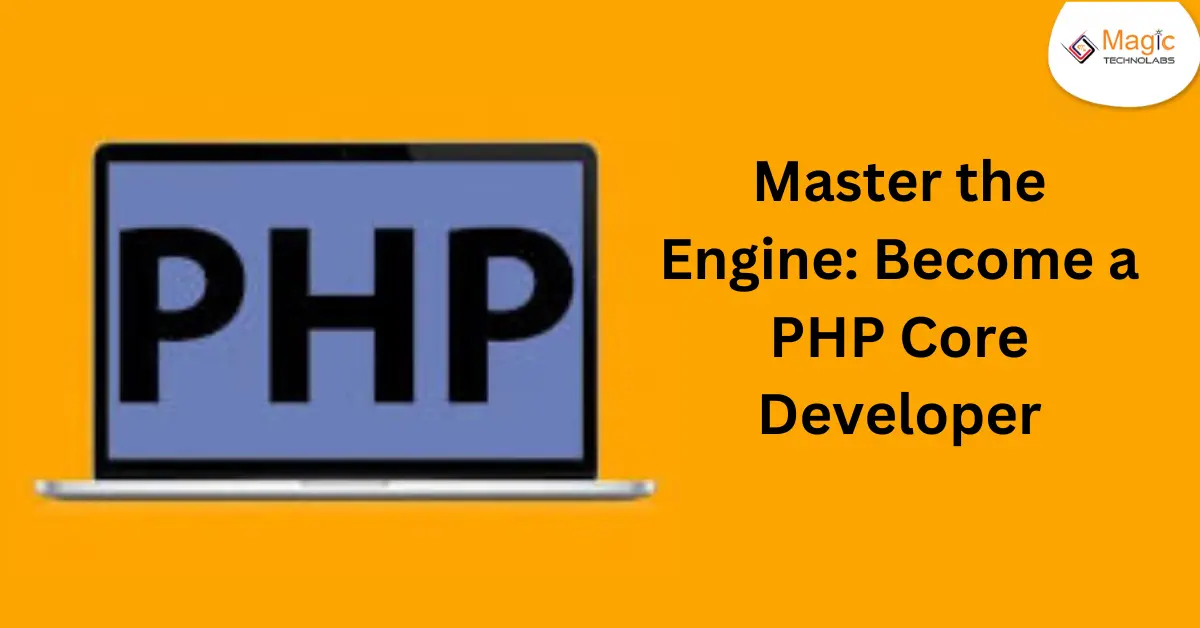PHP is the workhorse behind countless websites and web applications. While basic scripting gets you started, true mastery lies in understanding the core functionalities of this powerful language. This guide ignites your journey to becoming a PHP core developer, equipped to build dynamic and efficient web experiences.
Beyond Scripting: Delving into the Core
Most developers start with fundamental PHP syntax, writing basic scripts for tasks like form processing or data manipulation. However, a core developer delves deeper, understanding the engine that powers this language. This includes:
Internal workings of the PHP interpreter: Grasping how PHP processes code, manages memory, and interacts with the server environment empowers you to write optimized and efficient applications.
Advanced language features: PHP offers a rich set of features beyond basic loops and conditionals. Explore features like namespaces, traits, and generators to write modular and reusable code.
Object-oriented programming (OOP) principles: Mastering OOP concepts like encapsulation, inheritance, and polymorphism allows you to build complex and maintainable applications.
Optimizing Performance: From Script to Speed Machine
A core developer doesn't just write code; they write efficient code. Understanding how PHP interacts with servers helps you optimize performance. This involves techniques like:
Leveraging caching mechanisms: Techniques like caching database queries can significantly improve application responsiveness.
Code profiling and optimization: Utilize profiling tools to identify performance bottlenecks and optimize your code for speed and resource efficiency.
Understanding server configuration: Knowing how server settings like memory allocation and caching configurations impact PHP applications empowers you to fine-tune performance.
Building for the Future: Mastering Modern Technologies
The web development landscape constantly evolves. A core PHP developer stays ahead of the curve by embracing modern technologies that complement PHP:
Frameworks like Laravel or Symfony: These frameworks provide a structured approach to building web applications, offering features like routing, security, and database interaction.
Integration with other languages: Modern applications often involve components written in different languages. Learn how PHP interacts with languages like JavaScript and Python for seamless integration.
Understanding cloud platforms: Cloud platforms like AWS or Azure are increasingly popular for deploying web applications. Gaining knowledge of these platforms allows you to leverage their scalability and security features.
The Journey to Mastery
Becoming a PHP core developer is an ongoing process. Here are some starting points for your journey:
Explore the official PHP documentation: A wealth of information awaits you, from basic syntax to advanced features.
Delve into online tutorials and courses: Numerous resources offer in-depth tutorials and courses on advanced PHP concepts and best practices.
Contribute to open-source projects: Contributing to open-source projects exposes you to real-world codebases and fosters collaboration with other developers.
By mastering the core functionalities of PHP, optimizing performance, and embracing modern technologies, you'll transform from a scripter to a true PHP core developer, building powerful and dynamic web applications.
















